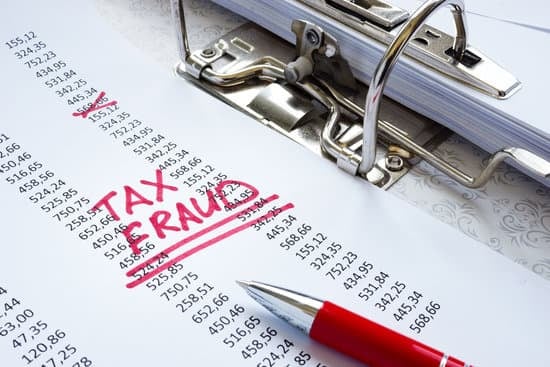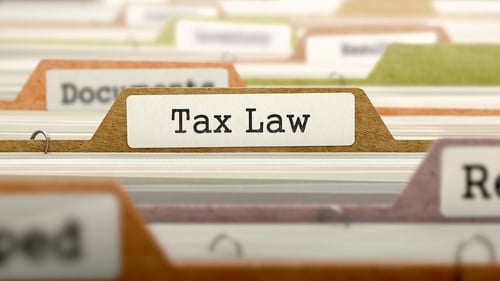Powell Tax Law Blog

Understanding Tax Fraud
Tax fraud is a serious offense that can have severe consequences, both in terms of criminal and civil penalties for individuals and businesses alike.
“Understanding the nuances of tax fraud is crucial to ensure compliance with complex tax laws and regulation,” says tax attorney Steve Powell.
As Investopedia points out, in the United States, taxpayers are bound by a legal duty to file a tax return voluntarily and to pay the correct amount of income, employment, sales, and excise taxes.
“Failure to do so by falsifying or withholding information is against the law and constitutes tax fraud. Tax fraud is investigated by the Internal Revenue Service Criminal Investigation (CI) unit, writes financial expert James Chen.
What Exactly is Tax Fraud?
Tax fraud involves intentionally providing false information on a tax return with the intent to evade paying taxes rightfully owed.
The Internal Revenue Service (IRS) determines tax fraud based on a taxpayer's willful and intentional actions to deceive the government.
The IRS Fraud Handbook says that “fraud is deception by misrepresentation of material facts, or silence when good faith requires expression, which results in material damage to one who relies on it and has the right to rely on it. Simply stated, it is obtaining something of value from someone else through deceit.”
“Tax fraud is often defined as an intentional wrongdoing, on the part of a taxpayer, with the specific purpose of evading a tax known or believed to be owing. Tax fraud requires both:
- A tax due and owing; and
- Fraudulent intent.”
Civil Tax Fraud vs. Criminal Tax Fraud
In all criminal and civil tax fraud cases, the burden of proof is on the government. The major difference between civil and criminal fraud is the degree of proof required:
- In criminal cases, the government must present sufficient evidence to prove guilt beyond a reasonable doubt.
- In civil fraud cases, the government must prove fraud by clear and convincing evidence.
The punishments are also different:
- Civil fraud results in remedial action taken by the government, such as assessing the correct tax and imposing civil penalties as an addition to tax, as well as retrieving transferred assets. Civil penalties are assessed and collected administratively as part of the unpaid balance of assessment.
- Criminal fraud results in a punitive action with penalties consisting of fines and/or imprisonment. Criminal penalties:
- Are enforced only by prosecution.
- Are provided to punish the taxpayer for wrongdoings; and
- Are enforced only by prosecution.
-
- Serve as a deterrent to other taxpayers.
Keep in mind that a tax fraud offense may result in both civil and criminal penalties. Restitution may be ordered in criminal tax cases pursuant to a plea agreement or a conviction under Title 18 U.S.C. and may be required as a condition of probation.
The Difference Between Tax Evasion and Tax Avoidance
It's also essential to distinguish between tax evasion and tax avoidance:
- Tax Evasion: The deliberate act of not paying taxes owed through illegal means.
- Tax Avoidance: Legally minimizing tax liability through strategic financial planning.
“Avoidance of tax is not a criminal offense. Taxpayers have the right to reduce, avoid, or minimize their taxes by legitimate means. One who avoids tax does not conceal or misrepresent but shapes and preplans events to reduce or eliminate tax liability within the parameters of the law,” explains the IRS. “Evasion involves some affirmative act to evade or defeat a tax, or payment of tax. Examples of affirmative acts are deceit, subterfuge, camouflage, concealment, attempts to color or obscure events, or make things seem other than they are.”
Indicators of Fraud vs. Affirmative Acts of Fraud
The IRS says that the following can be indicators of tax fraud:
- Taxpayers who knowingly understate their tax liability often leave evidence in the form of identifying earmarks (or indicators).
- Indicators of fraud serve as a sign or symptom or signify that actions may have been taken for the purpose of deceit, concealment or to make things seem other than what they are. Indications, in and of themselves, do not establish that a particular action was taken.
- Examples include substantial unexplained increases in net worth, substantial excess of personal expenditures over available resources, bank deposits from unexplained sources substantially exceeding reported income, and documents that appear to be altered or false.
The IRS says these are examples of affirmative acts of fraud:
- Affirmative acts of fraud are those actions that establish that a particular action was deliberately done for the purpose of deceit, subterfuge, camouflage, concealment, some attempt to color or obscure events, or make things seem other than what they are.
- Fraud cannot be established without affirmative acts of fraud.
- Examples include deliberate or intentional omission of specific items where similar items are included; concealment of bank accounts or other assets; willful failure to deposit receipts to business accounts; and covering up sources of receipts.
Different Types of Tax Fraud
Tax fraud is a multifaceted issue that encompasses various deceptive practices aimed at evading tax obligations. Here are some examples of tax fraud:
- Willful Failure to Pay Income Taxes: Intentionally refusing to fulfill income tax obligations despite having the financial means to do so.
- Hiding Income or Assets: This involves concealing income or assets to avoid paying taxes on them.
- Making a Frivolous Tax Claim: Submitting a tax return with groundless or absurd claims, often to reduce tax liability.
- Identity Theft for Tax Fraud: Illegally using stolen personal information to file fraudulent tax returns and claim refunds.
- Offshore Tax Evasion: Concealing income or assets in offshore accounts to evade taxes.
- Employment Tax Fraud: Manipulating payroll taxes, such as underreporting employee wages or misclassifying workers.
- False Deductions or Credits: Inflating deductions or claiming credits illegitimately to reduce tax liability.
- False Business Expenses: Falsely inflating business expenses to reduce taxable income.
- Abusive Tax Shelters: Engaging in complex financial arrangements to illegitimately reduce tax liability.
- Pyramiding Schemes: In a business context, using one set of taxes collected to cover another, creating a cycle of non-payment.
- Falsifying Documents: Creating or altering documents, such as invoices or receipts, to deceive tax authorities.
- Non-Filing or Underreporting Income: Not filing a tax return or intentionally underreporting income to evade taxes.
- Payroll Tax Fraud: Withholding payroll taxes from employees but not remitting them to the IRS.
- Unreported Offshore Income: Failing to report income from foreign accounts, investments, or assets.
- Shell Company Fraud: Creating fictitious shell companies to hide income and assets.
- Inflating Charitable Deductions: Exaggerating charitable contributions to claim higher deductions than made.
- Cryptocurrency Tax Evasion: Concealing or underreporting cryptocurrency transactions to evade taxes.
- Claiming False Exemptions or Dependents: This entails claiming exemptions or dependents on a tax return that are not eligible.
IRS Says to Watch Out for Schemes, Scams and Cons
Some taxpayers can be caught up in tax fraud by being involved in schemes, scams, and cons.
“If it sounds too good to be true, it probably is!” says the IRS. “Don't become a victim to any scheme that offers instant wealth or exemption from your obligation as a United States citizen to file tax returns and/or pay taxes. Some of these schemes can literally cost you your life savings. Others can result in your prosecution and imprisonment if you knowingly participate in them.”
IRS advises to look out for:
- Abusive Return Preparer: Taxpayers should be very careful when choosing a tax preparer. While most preparers provide excellent service to their clients, a few unscrupulous return preparers file false and fraudulent tax returns and ultimately defraud their clients. It is important to know that even if someone else prepares your return, you are ultimately responsible for all the information on the tax return.
- Abusive Tax Schemes: Abusive tax schemes originally took the structure of fraudulent domestic and foreign trust arrangements. However, these schemes have evolved into sophisticated arrangements to give the appearance that taxpayers are not in control of their money. However, the taxpayers receive their funds through debit/credit cards or fictitious loans. These schemes often involve offshore banking and sometimes establish scam corporations or entities.
- Non-filer Enforcement: There have always been individuals who, for a variety of reasons, argue taxes are voluntary or illegal. The courts have repeatedly rejected their arguments as frivolous and routinely impose financial penalties for raising such frivolous arguments. Take the time to learn the truth about frivolous tax arguments.
Avoiding Tax Fraud! Ask the Right Questions!
Navigating the intricacies of tax preparation and ensuring compliance with tax laws is a responsibility that every taxpayer bears.
Protecting oneself from potential fraud requires a proactive approach, from choosing a reputable tax preparer to understanding common schemes that could lead to legal trouble.
Choose a reputable and qualified tax professional to ensure accurate and lawful tax filings. Here are five questions you can ask to make sure you have hired the right tax professional:
- What are your credentials and qualifications? Ensure the tax preparer is a certified professional, such as a Certified Public Accountant (CPA), enrolled agent, or tax attorney. Ask about their education, training, and any relevant certifications.
- How much experience do you have with tax preparation? Inquire about the preparer's experience in handling tax situations like yours. A seasoned tax professional is more likely to be familiar with the complexities of tax laws and regulations.
- Can you provide references from other clients? Request references or testimonials from past clients to gauge the preparer's reputation and reliability. Positive feedback from others can instill confidence in their abilities.
- What is your approach to staying informed about changes in tax laws? Tax laws are subject to change, so it's crucial that your tax preparer stays current. Ask about their commitment to continuing education and how they stay informed about updates to tax regulations.
- How do you determine your fees, and can you provide a detailed estimate? Clearly understand the cost of the tax preparation services. Inquire about the fee structure, whether it's based on the complexity of the return or other factors. A transparent explanation of fees helps avoid surprises later.
Employers should also regularly review payroll records and ensure proper classification of workers.
What Happens When You Are Charged with Tax Fraud
If you find yourself facing tax fraud charges, seeking the assistance of an experienced tax attorney like Powell Tax Law is crucial. Powell Tax Law.
The steps that typically take place include:
- Investigation: The IRS investigates the alleged tax fraud, gathering evidence and building a case.
- Charges and Arrest: If there is sufficient evidence, charges may be filed, leading to arrest.
- Legal Representation: Engaging the services of an experienced tax attorney is vital to navigating the legal complexities and build a strong defense.
- Negotiation and Resolution: A skilled tax attorney can negotiate with the IRS to reach a resolution, potentially minimizing penalties and consequences.
If you have more questions or concerns about tax fraud, reach out to the experienced tax pros at Powell Tax Law today, serving the Houston, San Antonio, and Austin area.



.webp?width=500&name=thumbnail_large-1(2).webp)



